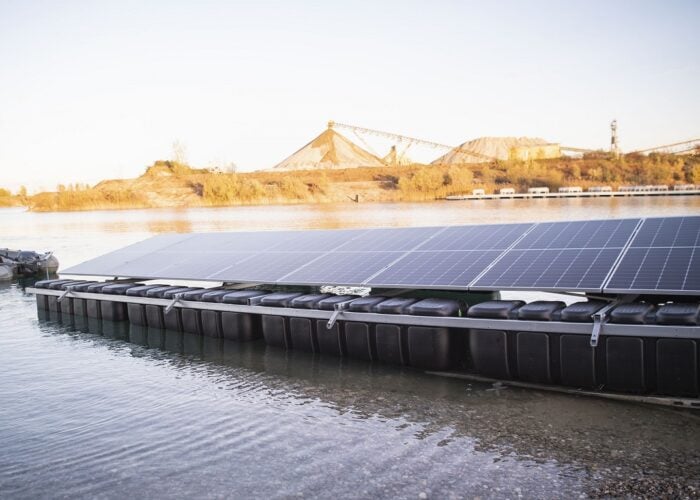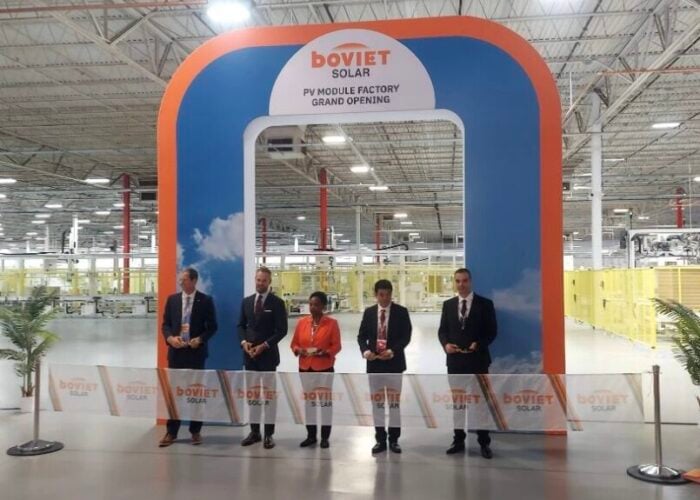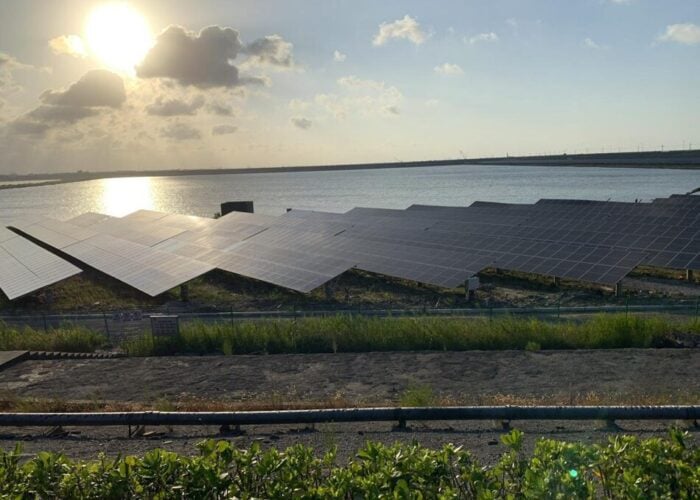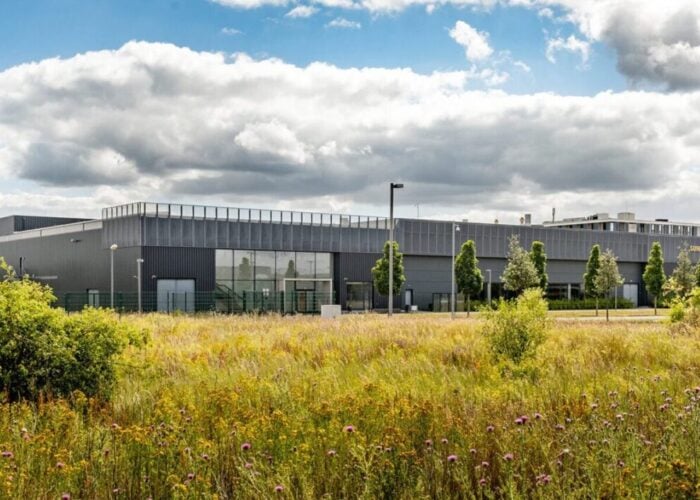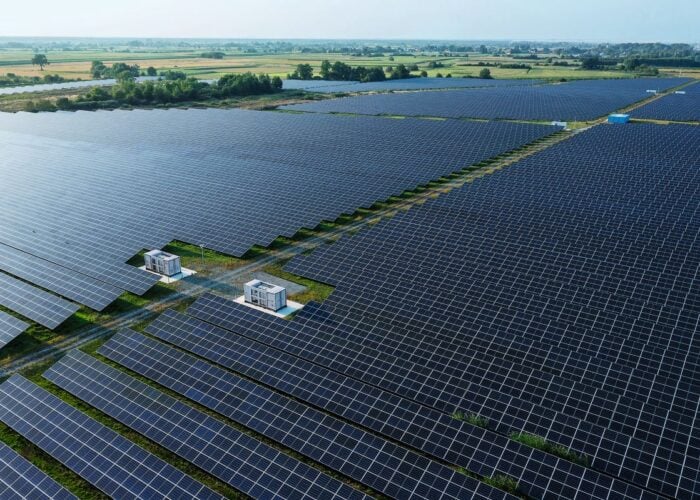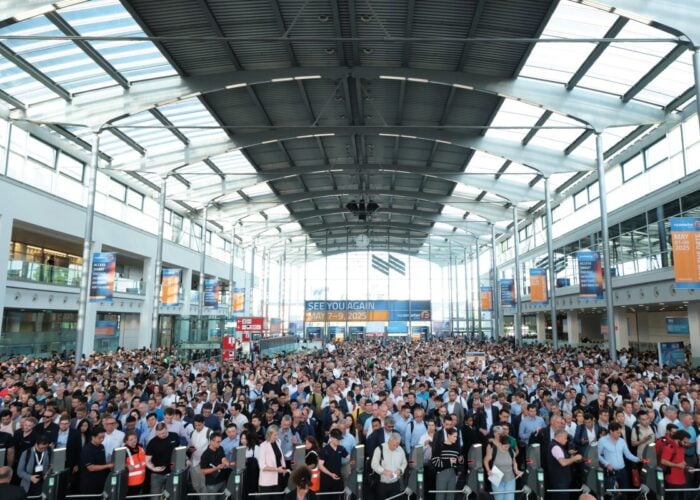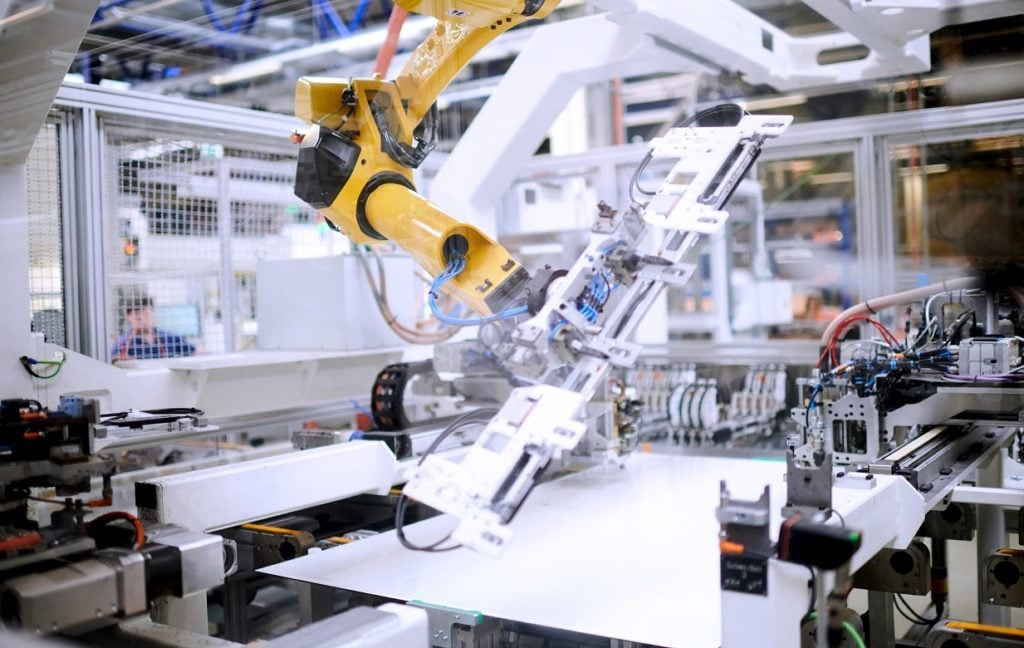
Trade body SolarPower Europe (SPE) has called on the European Commission to include a ‘best-in-class’ solar labelling to leverage PV industry demand for European manufacturing in the Green Deal Industrial Plan (GDIP).
In a letter sent to the European Commission and European Council presidents, Ursula von der Leyen and Charles Michel, respectively, SPE said that in order to stimulate the market demand for European-made products, manufacturers will have to leverage a high sustainability performance as the basis of its competitive advantage.
Unlock unlimited access for 12 whole months of distinctive global analysis
Photovoltaics International is now included.
- Regular insight and analysis of the industry’s biggest developments
- In-depth interviews with the industry’s leading figures
- Unlimited digital access to the PV Tech Power journal catalogue
- Unlimited digital access to the Photovoltaics International journal catalogue
- Access to more than 1,000 technical papers
- Discounts on Solar Media’s portfolio of events, in-person and virtual
Or continue reading this article for free
This would be made via the establishment of a definition for ‘best-in-class solar’ based on a set of environmental, social and governance (ESG) criteria to recognise and award the top-performing products.
One of the applications for this category could be achieved in public procurement and specific auctions – in a non-exclusive and non-discriminatory manner – by allowing national governments to subsidise the higher costs of buying ‘best-in-class’ modules and inverters with tax credits or other bonuses, according to SPE’s letter.
Mobilising public and private finance for utility-scale solar manufacturing is the other important aspect to help Europe’s goal to have a 30GW annual domestic manufacturing capacity by 2025 across the supply chain of solar PV.
SPE estimates the investment to be north of €30 billion (US$31.8 billion) to reach the ‘polysilicon-to-modules’ goal in two years’ time, which will require a change in frameworks both at a national and EU level.
The trade body, along with CEOs of companies in the solar industry have been calling in the past for financial support in order to boost a domestic European PV manufacturing capacity.
The current State Aid framework outlined in the GDIP needs to be expanded from 2025 to 2030 at least, especially for operational expenditure (OPEX), similar to the US Inflation Reduction Act (IRA) 10-year timeframe, according to SPE.
Moreover, the State Aid Temporary Crisis and Transition Framework (TCTF) should allow aid for OPEX to compensate for energy costs and other structural disadvantages while the industry scales up the supply chain.
A solution to the high energy costs in Europe has been a demand from several manufacturers in Europe to be implemented in the GDIP in order to help the industry compete at a level playing field with other countries.
In Europe any state support could be implemented subject to improving the carbon footprint of the sourced energy either via power purchase agreements, contracts for difference or “through any other sustainability criteria”, said the trade body.
Aid intensity limits in the TCTF need to be raised significantly in order to be at a similar level as the IRA, as the current maximum aid level for a 1GW module assembly would be north of €100-150 million, while in the US companies could get €70 million per year during a decade for a €100 million investment.
Tax breaks should be raised to 80% instead of the actual 10-15% that are currently proposed by the European Commission, according to SPE.
Furthermore, mobilising EU funding in conjunction with State Aid will be elemental to avoid inequalities among member states in terms of financial availability, such as leveraging the existing funds under the Recovery and Resilience Fund which could be leveraged to finance solar and inverter manufacturing.
The full letter, directed to the presidents of the European Council (Charles Michel) and the European Commission (Ursula von der Leyen) can be read here.

